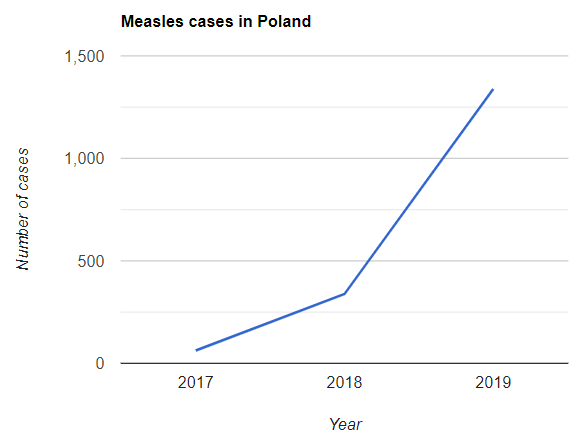Measles in Poland is on the rise

Measles is on the rise in Krakow’s Małopolska region and Poland as a whole, health officials report.
Since the beginning of the year, 100 adults and 35 children in the area have been diagnosed with measles. In all of Poland, there have already been 1,338 cases this year – compared to 99 at this same point in 2018. In 2017, there were only 63 case.
 Measles is a highly infectious airborne virus which usually causes fever, runny nose, inflamed eyes, coughing, and a characteristic red rash. Although most patients recover after a few weeks, it can cause serious complications and even lead to death.
Measles is a highly infectious airborne virus which usually causes fever, runny nose, inflamed eyes, coughing, and a characteristic red rash. Although most patients recover after a few weeks, it can cause serious complications and even lead to death.
The good news? It is easily preventable by a series of two vaccines.
The bad news? A pseudoscientific anti-vaccination conspiracy theory has been on the rise around the globe, and Poland is no exception.
The overwhelming scientific consensus following decades of rigorous study is that vaccines are safe and effective, and that the very small risk of infection or injury is outweighed by these positives.
Nevertheless, in recent years an increasing number of parents have become skeptical that their children could be harmed by vaccination. The surge is likely due in large part to a lone study published in 1998 which falsely claimed to link vaccines with autism. (The study was later retracted in full, and the author has since lost his medical license after multiple acts of misconduct.)
Health experts warn that not vaccinating a child could have consequences beyond the fate of that particular individual. Some people are unable to be vaccinated for legitimate medical needs, but they can still often be protected if most of the population is vaccinated. This concept, called herd immunity, is illustrated below.


